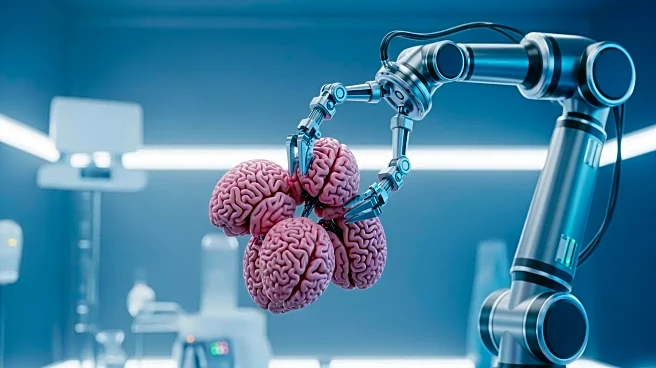What's Happening?
The field of neurodegeneration research is being transformed by the use of brain organoids and automation. Brain organoids, grown from human stem cells, mimic key aspects of human brain development and disease,
while automation enables scalable and consistent production. These advancements address limitations of traditional models and open new avenues for drug discovery.
Why It's Important?
The ability to accurately model human brain diseases using organoids and automation could lead to breakthroughs in understanding and treating neurodegenerative conditions. This approach allows for high-throughput drug screening and personalized medicine, potentially improving outcomes for patients with Alzheimer's, Parkinson's, and other neurological disorders. The pharmaceutical industry stands to benefit from these innovations, accelerating the development of effective treatments.
What's Next?
Continued research and development in organoid technology and automation may lead to standardized protocols and integrated solutions for neurodegeneration research. This could enhance reproducibility and scalability, facilitating large-scale studies and drug discovery efforts.
Beyond the Headlines
The ethical considerations of using organoids in research must be addressed, particularly in terms of consent and the potential for misuse. As the field advances, establishing ethical guidelines will be essential to ensure responsible development and application.









